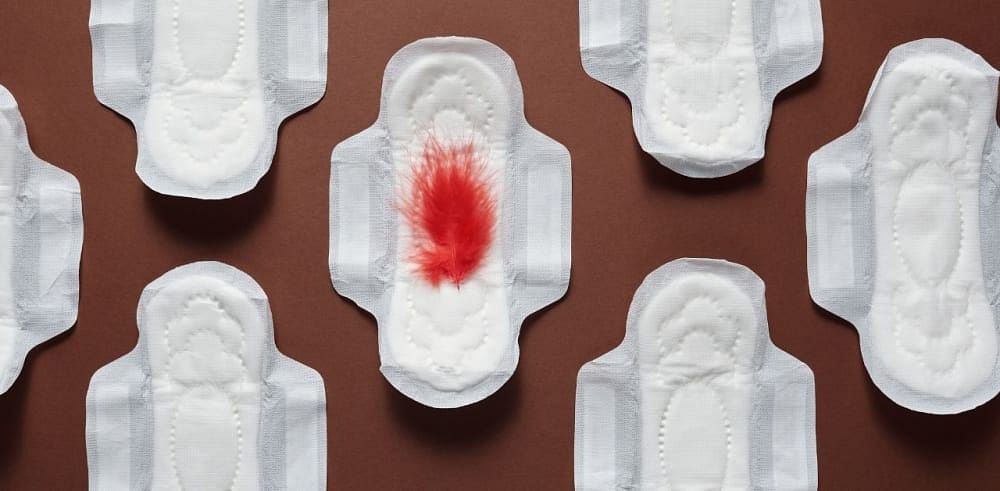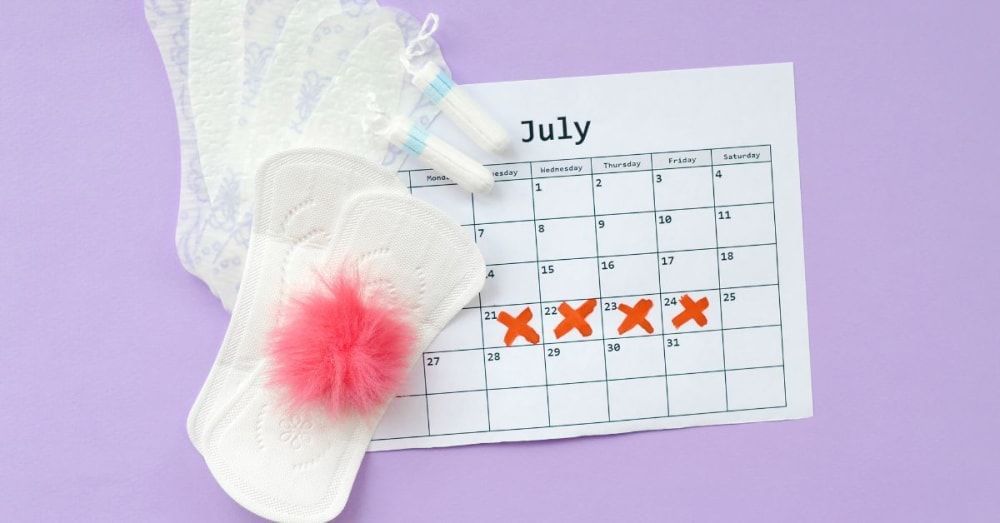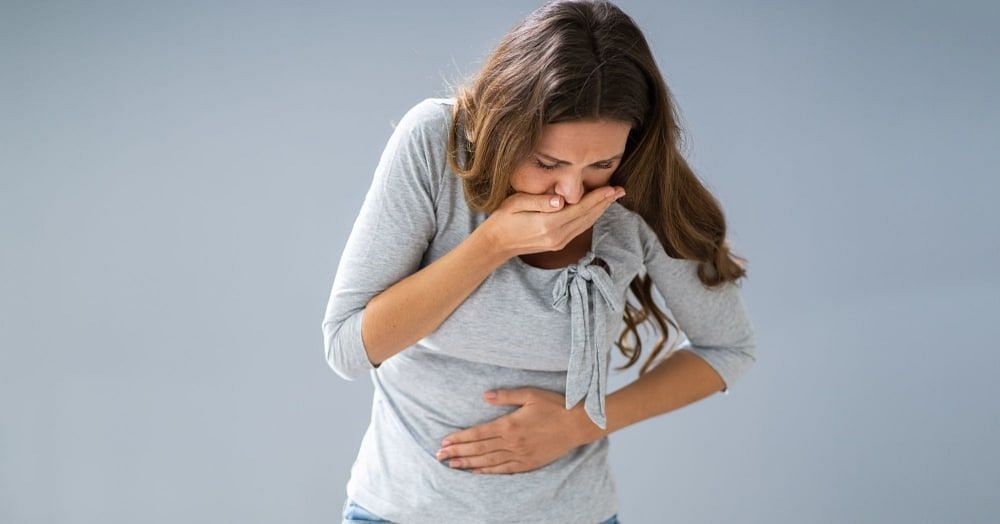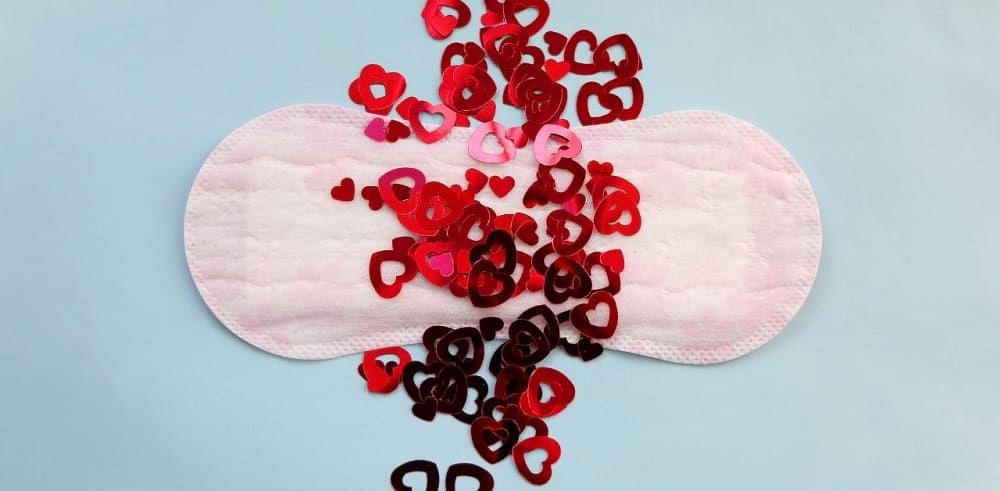Are you wondering if it is okay to have periods twice a month? Do periods after 15 days again worry you? Well, fear not. Here is a piece of information to take care of all your concerns about what causes a woman to menstruate twice in a month.
The average menstrual cycle for many women starts every 28-30 days. Commonly, this period varies from 24 to 37 days. But, there can be occasional changes in the period cycle. Some underlying health issues cause this. Females with a shorter menstrual cycle may have periods twice a month. It is a common occurrence among some women.
Is It Okay to Have Periods Twice a Month?
Yes, there is nothing to worry about having periods after 15 days. However, consulting the doctor to know why is never a bad idea.
Females in puberty and just before menopause might experience vaginal bleeding. The occurrence is expected during the menstrual period. The period length varies between different women. It can be distinct at various stages of their life.
What Causes a Woman to Menstruate Twice in a Month?
Below are some of the possible causes to answer your question, “why am I bleeding 2 weeks after my last period?”
1. Once in a While Irregularity
It is not always a problem to have two periods in a month. A woman who has a shorter menstrual cycle may experience two periods in one month. However, the periods come back to the regular period cycle after that. The menstrual cycle can be an occasional change. Usually, doctors look for frequent bleeding before diagnosing treatments.
2. Young Age
Among young women, irregular menstrual cycles are usual. A menstrual cycle may take six years to get regular. Women have shorter or longer menstrual cycles at the start of puberty. The condition could lead to two periods in a month. It can be due to fluctuations in hormone levels.
3. Endometriosis
In the case of endometriosis, uterine tissue increases in other body areas. The increased uterine tissue causes abdominal pain, cramping, or irregular bleeding. Women may bleed heavily, and it might seem like a period. The doctor diagnoses endometriosis using ultrasounds.
4. Perimenopause
Perimenopause can occur due to menopause when hormones change. It leads to irregular menstrual cycles, shorter or longer cycles, missed periods, and heavy or light bleeding. The hormonal change stands to be a prime reason for periods twice a month in many women.
5. Thyroid Problems
It is the gland in front of the throat. The thyroid may result in a change in periods. It regulates hormonal processes and controls functions like body temperature and metabolism. Having an irregular menstrual cycle is a common symptom associated with thyroid problems.
6. Uterine fibroids
These are growths that arise in the uterus. Fibroids are usually not cancerous but can cause heavy menstrual bleeding. Other symptoms of fibroids can include feelings of fullness or pressure in the pelvis, frequent urination, low back pain, and pain during sex. While medics are unaware of what causes uterine fibroids to grow, they know that these tend to run in families, and shifts in hormone levels can impact them.
Reason for Periods Twice a Month
Many of the reasons for having a period twice a month are benign. Visit a doctor to identify the cause. Here are some of the reasons for having periods twice a month:
1. Missing birth control
Missing birth control or contraception causes irregular bleeding. If you take birth control, you might bleed because of the abrupt withdrawal of hormones. This kind of bleeding is usually not an emergency.
2. Pregnancy
Whenever women say, “I got my period twice this month,” they end up wondering, am I pregnant? Incubation usually results in missed periods. Some women also bleed irregularly in case of pregnancy. Seeing blood spots is common during pregnancy, especially in the first trimester. It can happen for many reasons, just after heavy exercise or sex. Polyps lesions (that are benign) can also be a reason. They grow inside the uterus or cervix and can bleed spontaneously.
3. Uterine polyps and fibroids
Uterine polyps and fibroids are harmless lesions and tumours. They grow in the uterus and are common among women. They are also related to hormonal issues. Uterine polyps cause bleeding between periods. This type of bleeding is a common occurrence when the polyps are touched during sex. Fibroids cause pain, abdominal bloatig, back pain, anaemia, pain during intercourse, or spontaneous bleeding. These are not associated with the menstrual cycle.
4. Infection
Vaginal or cervical infections can also be a reason for irregular periods. They can cause bleeding outside of the period. Inflammation and infection of the cervix due to bacterial vaginosis and trichomoniasis cause irregular bleeding. Infections should get immediate treatment as they can lead to sexually transmitted diseases like trichomoniasis. These diseases increase the chances of thyroid diseases or the underactive and overactive thyroid gland. The imbalance in hormones can affect menstruation as well as ovulation. It is usually diagnosed with a blood test. Taking timely prescribed medicines can treat this issue.
5. PCOS
PCOS or Polycystic Ovarian Syndrome is a common hormone imbalance that affects 10-20% of women. The disease can occur due to less frequent ovulation or lack of ovulation. It leads to oestrogen, testosterone, and progesterone imbalance.
Risk Factors to Consider
There are a few risk factors that you must consider in case of consistent irregular periods:
1. Anaemia
Frequent bleeding results in various health issues. The condition can also occur due to a lack of iron in the blood. The doctor checks iron levels to determine the cause of abnormal bleeding.
2. Difficulty in tracking ovulation
Having more than one period in one month can make it difficult for women to track ovulation. The problem occurs if it is occasionally experienced and is not normal for women. If you are not planning on becoming pregnant, practising safe sex is essential.
3. Difficulty in pregnancy
To become pregnant, you need to ensure a good health pattern. This also includes the menstrual cycle. Irregular bleeding adds complexity to this process. It is vital to consult a doctor when trying to become pregnant. Heavy and irregular periods can hamper the process.
Complications
1. Clots
If larger clots regularly pass during the period, then visit a doctor. Such a condition can hint toward a severe health issue.
2. Spotting
Spotting can be a sign of irregular periods. This is a common complication. If it occurs regularly, you must see a doctor. This condition can hint toward a severe health concern.
3. Cramps
If there is a record of cramps and pain during your period, then seeing a doctor is necessary.
Treatment For Irregular Period
1. Treatment
Your treatment depends on the underlying cause of frequent bleeding. If you have shorter cycles or recently started menstruating, you don’t need treatment. In case of anaemia, the doctor might recommend iron supplements. A possible cure for periods occurring too frequently is hormonal birth control. This helps to regulate your periods and helps to resolve anaemia issues caused by heavy bleeding.
2. Hypothyroidism
If you have hypothyroidism or an underactive thyroid gland, your body can’t make enough thyroid hormone. Your doctor might prescribe thyroid hormone replacement therapy. You can take this orally.
3. Hyperthyroidism
If you have hyperthyroidism or an overactive thyroid gland, your body makes too much thyroid. Many treatments are available for such a condition. The doctor will recommend what is best for your case.
4. Menopause
If you are at the beginning of menopause, the doctor may prescribe hormone therapy. They can also suggest oestrogen replacement therapy. The treatments help regulate your periods until they slowly disappear. In the later stages of menopause, you will get treated naturally.
When to See a Doctor
Two periods in a month might not be a cause for concern. However, seek advice from a doctor if you experience extreme pain in the lower abdomen. The problem can occur during heavy periods or bleeding between periods.
The condition might get mistaken for two periods. If you experience extreme pain during sexual intercourse, you should visit a doctor. There are some periods after 15 days again treatment that can help you in such a case. Ask your doctor, “is it normal to have periods after 15 days?” to have more insights on this issue.
Preparing for Your Doctor’s Appointment
Do not hesitate to ask your doctor what causes you to have periods twice a month. Changes in the menstrual cycle indicate a health problem. The doctor might ask questions about the symptoms.
Calculating the length of the cycle helps count the first day of bleeding. The menstrual cycle will end on your first day of bleeding. Various apps are available for tracking your menstrual cycle. By keeping a history of irregular bleeding and tracking your period cycles on the app, you can identify the problem quickly. In addition, it can make it easy to share your cycle information with the doctor. Do not forget to ask your doctor, “why am I bleeding 2 weeks after my last period?” to clear your doubts.
In some situations, like puberty or perimenopause, two periods in a month might not be a cause for concern. However, if you are familiar with the cycle and have seen changes, or if you understand that you bleed more than you should, talk to your doctor. The doctor will help you get to the bottom of the issue, and they can help balance hormone levels and regulate bleeding. Various conditions can result in irregular bleeding. The sooner you see a doctor, the better treatment you get.
Summing Up on Periods After 15 Days Again
Instead of worrying about why your period comes two or three times a month, look for the reason behind this. Irregular periods can result from comprehensive factors, including some medical circumstances. Most reasons for irregular periods are not severe, but some are. You must visit a doctor to determine the cause and periods after 15 days again treatment or other approaches.
FAQs
Why Am I Bleeding 2 Weeks After My Last Period?
In the case of puberty and just before menopause, women might experience vaginal bleeding more than once each month during the menstrual period. Apart from this natural reason, diseases such as PCOD (Poly Cystic Ovarian Disease), uterine fibroids, uterine polyps, vaginal infections, or uterine infections can cause mistimed and irregular periods.
Sometimes missing your usual birth control pills can also cause intermittent bleeding between two period cycles. A period varies between different women. It can be different at various stages of their life. Generally, women experience a menstrual period once a month. This cycle happens every 21 to 35 days.
I Got My Period Twice This Month. Am I Pregnant?
Bleeding between the periods can be expected. It often doesn’t mean that you are pregnant. If you take hormonal contraceptives, it can result in a drop in hormone levels. This is known as breakthrough bleeding. It happens two weeks after the last period.
Why Does the Period Come 3 Times a Month?
There are a few reasons for bleeding to occur between periods. One of the reasons can be an infection in the vagina or uterus leading to bleeding which may be misconstrued as a period. Also, there can be changes in the hormone levels that can trigger the menstrual cycle more than once. It can also occur due to the improper use of hormonal contraception.
Is It Normal to Have Periods After 15 Days?
In the case of certain underlying conditions like thyroid issues and hormonal problems, it is common to have quick periods. In addition, clots or fibroids also result in irregular bleeding among some women.
Can a Girl Have 2 Periods in One Month?
There are some reasons for the period twice a month. This results due to infection, use of hormonal contraception and contraceptive devices, or due to injury.
Can Stress Cause Periods Twice a Month?
Stress could be a prime reason for irregular bleeding or spotting between regular periods. Stress, mental or physical, causes fluctuations in the body’s hormone levels. During mental stress testosterone levels rise. Such fluctuations in the hormones eventually affect the hormones controlling the menstrual cycle. Thus, stress can lead to increased menstruation in terms of both number of days or frequency.
References
- Endometriosis - https://www.womenshealth.gov/a-z-topics/endometriosis
- Perimenopausal Bleeding and Bleeding After Menopause - https://www.acog.org/womens-health/faqs/perimenopausal-bleeding-and-bleeding-after-menopause
- Thyroid disease - https://www.womenshealth.gov/a-z-topics/thyroid-disease
- Menstrual Cycle - https://www.womenshealth.gov/menstrual-cycle












